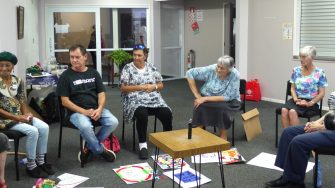Arts-Based Delivery Of An Innovative Model Of Aged Care – Delivering A Successful Ageing In Place Program
Institute member Dr Patricia Morgan has led research to investigate the success of the Virtual Eastern Bay Villages: Te Kokoru Manaakitanga (VEBV: TKM), an ageing in place organization in the Eastern Bay of Plenty, New Zealand.

